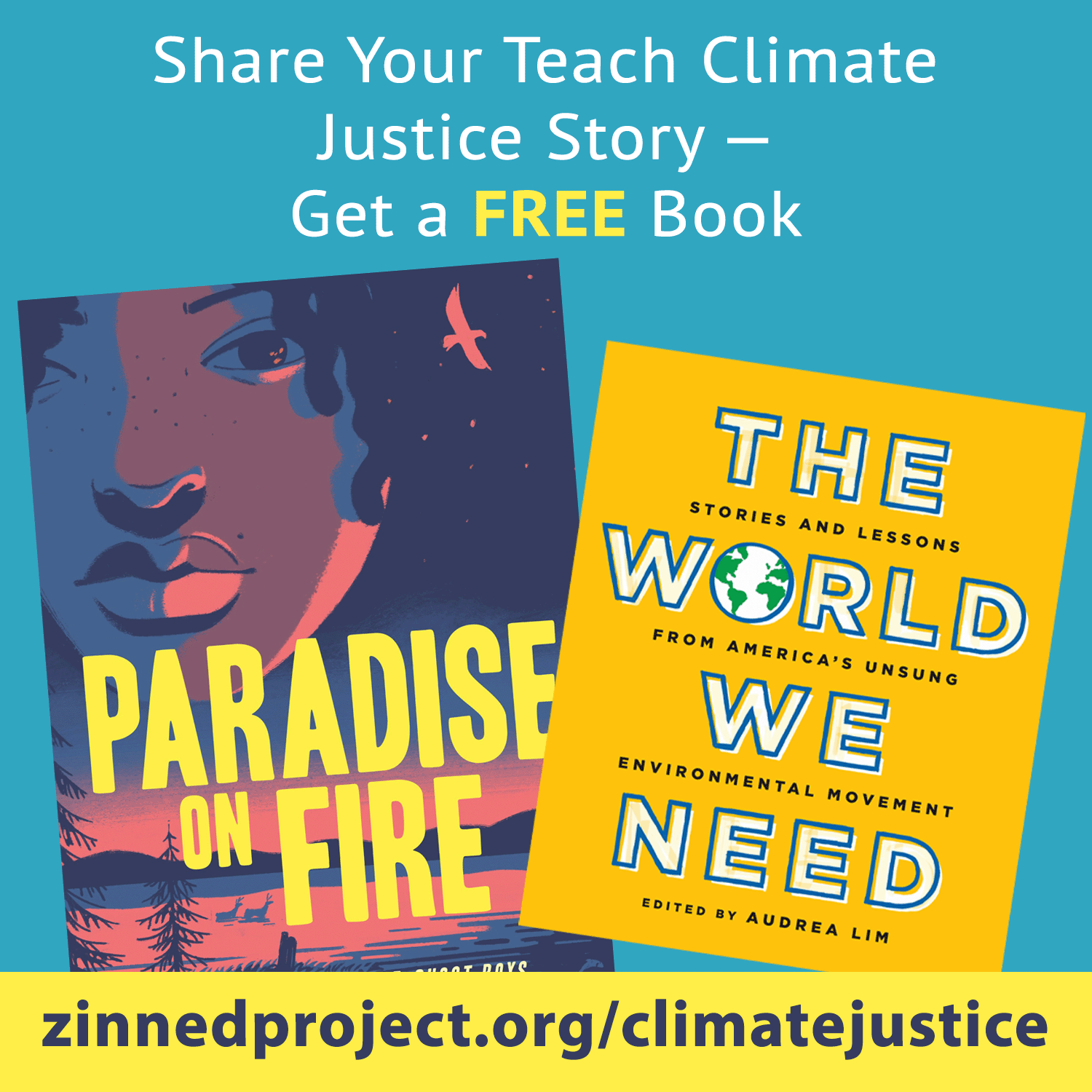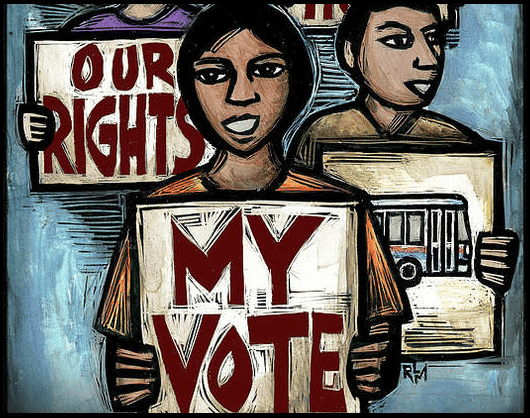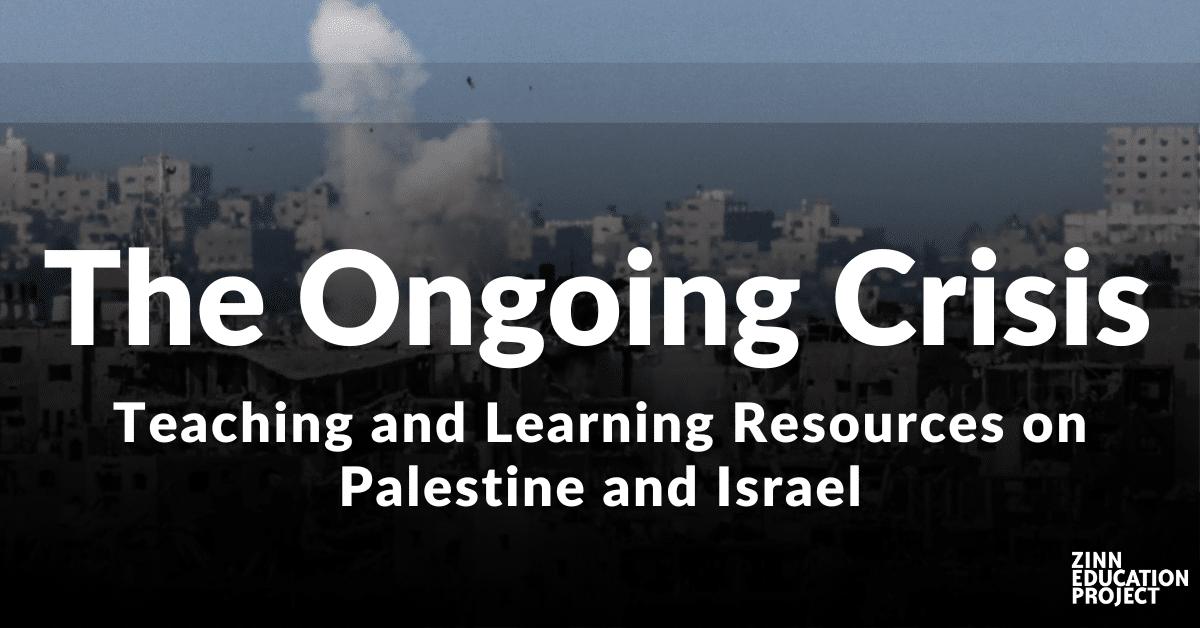Here is a paradox: Presidential elections are a time when more people in the country pay attention to political issues; yet it is also a time when politicians head for the nearest sound-bite and fail to help people think about the roots of problems or the profound changes needed to address them. Take climate change and immigration.
Climate Justice

In Denver, Colorado on February 20, 2017, hundreds of youth and climate justice organizations gathered and marched to the Colorado State Capitol to rally support for the upcoming court hearing on fracking and climate change. Photo by Helen H. Richardson, The Denver Post
As the climate emergency intensifies, young people need tools that help them understand who shaped the warming world they inherited. What led to this crisis that has put all life on Earth in jeopardy? And how can young people act to make a difference?
The millions of young people who tuned in to the recent presidential debate heard no urgency about the climate chaos unfolding all around them. Instead, they heard both candidates pledge allegiance to fracking for more fossil fuels.
That’s the bad news.
The good news: Educators can equip students to recognize the breadth of the climate emergency, grasp how it strikes unequally around the world, examine its social and economic causes, and come to see themselves as activists for a just society and a stable climate.
We offer Teach Climate Justice campaign resources, including free downloadable lessons, a climate crisis timeline, recommended books and films for the classroom, articles, and a sample school board climate justice resolution.
Climate Justice Teaching Resources
Teach About Immigration
The airwaves are full of inflammatory rhetoric about immigrants and calls for “mass deportations.” Politicians fear-monger and race-bait about an “invasion” at the Southern border: Immigrants are “poisoning the blood of our country.”
They ignore the long history of U.S. invasions around the world — both military and economic — that have turned so many people into refugees. And they fail to connect rich countries’ carbon emissions with the climate calamities that are felt most intensely in the Global South.
The dire conditions caused by decades of colonialism, militarism, “free trade” policies, and oil and gas exploitation are forcing many people to make the desperate and dangerous trek North.
That is why it is important to teach about immigration. Students are impervious to lies when they know the history and can think critically.
We offer free lessons, teaching guides, and other resources for teaching about immigration.
Immigration Teaching Resources
We offer teaching resources on more election topics, including voting rights, reproductive rights, Palestine, education, and McCarthyism.












Twitter
Google plus
LinkedIn